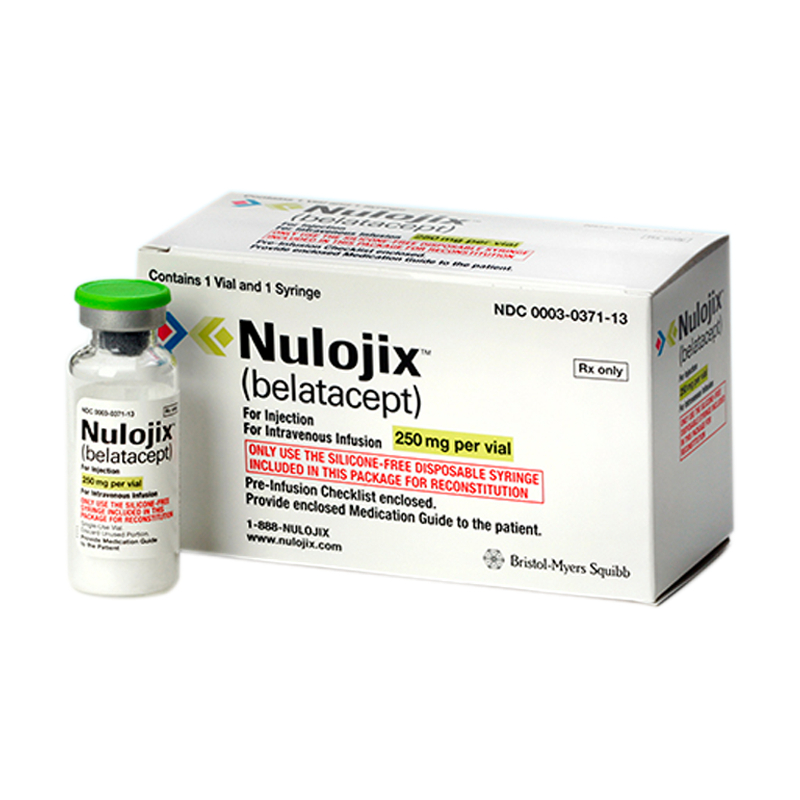Efficacy, Function, and Side Effects of Belatacept: A Comprehensive Guide for Kidney Transplant Patients

Efficacy, Function, and Side Effects of Belatacept: A Comprehensive Guide for Kidney Transplant Patients
For kidney transplant patients, finding an effective medication to prevent organ rejection while minimizing side effects is crucial for improving their quality of life. Belatacept, a selective T-cell costimulation blocker, has received significant attention in the field of kidney transplant treatment in recent years. How does it work? What is its efficacy? And what are the potential risks? This article will provide you with a detailed explanation.
Kidney transplantation is an important treatment for chronic renal failure, but organ rejection after transplantation has always been a problem that troubles patients and doctors. The immune system regards the transplanted kidney as a "foreign body" and attacks it, and immunosuppressive agents are the core drugs to address this issue. Belatacept has entered clinical use in this context, offering patients a new treatment option.
The Mechanism of Action of Belatacept: Precise Blockade of the Immune Response
Belatacept, scientifically known as a selective T-cell costimulation blocker, has a sophisticated working principle. In the body's immune response, the activation of T cells requires two signals. Belatacept can bind to CD80 and CD86 on antigen-presenting cells, blocking the CD28-mediated costimulatory signal transmission of T cells, thus precisely inhibiting the activation and proliferation of T cells. This mechanism of action differs from traditional calcineurin inhibitors (such as cyclosporine and tacrolimus). Belatacept is more targeted and specific, reducing the widespread impact of immunosuppressive therapy on the body's overall immune system and minimizing interference with other normal bodily functions.
The Efficacy of Belatacept: A New Hope for Long-Term Management
Numerous clinical studies have confirmed that Belatacept performs well in preventing organ rejection after kidney transplantation. Compared with traditional immunosuppressive agents, it shows potential advantages in the long-term management of kidney transplant patients. It can not only effectively prevent acute rejection but also, in some studies, demonstrate a relatively low risk of chronic kidney transplant rejection. This means that patients using Belatacept may have a longer survival time for their transplanted kidneys and better physical condition maintenance, significantly improving their long-term quality of life.
However, while focusing on efficacy, the cost of the drug is also a concern for patients. The price of Belatacept is relatively high, and for many patient families, long-term medication may bring significant economic pressure. Prices vary in different regions and channels. Before starting medication, patients can learn more about relevant information and consult Dingxiang customer service for more detailed price information and insurance reimbursement details to make more appropriate treatment decisions.
The Side Effects of Belatacept: Potential Risks to Be Aware Of
Although Belatacept is highly effective, like all immunosuppressive agents, it also has side effects. Increased risk of infection is one of the most common issues. Due to the drug's suppression of the immune system, patients are particularly vulnerable to bacterial, viral, and fungal infections, especially in the initial stages of treatment. For example, they may frequently experience respiratory tract infections, urinary tract infections, etc. Therefore, it is necessary to closely monitor the physical condition and take proactive preventive measures, such as paying attention to personal hygiene and avoiding crowded places.
In addition, Belatacept may also cause immune-related side effects, such as an increased incidence of post-transplant lymphoproliferative disorder (PTLD). Although such side effects are relatively rare, during the treatment process, patients still need to undergo regular monitoring and evaluation. Once any abnormalities are detected, doctors can promptly adjust the treatment plan.
Besides the above side effects, some patients may also experience neurological symptoms, such as headaches and dizziness. The endocrine and immune systems may also be affected, and there are certain cardiovascular toxicity risks. Therefore, closely monitoring various physical indicators is extremely important during the use of Belatacept.
Real-Life Case Q&A for a Closer Look at the Treatment Scenario
Question: I just had a kidney transplant, and my doctor recommended Belatacept. Do I need to take this drug continuously? Will the cost be a heavy burden?
Answer: Generally, kidney transplant patients need to use immunosuppressive agents for a long time, and Belatacept is no exception, to continuously prevent organ rejection. Regarding the cost, it is indeed relatively high. You can communicate with your attending doctor to understand the local medical insurance reimbursement policy. You can also consult Dingxiang customer service to obtain more comprehensive cost information and medication advice. At the same time, based on your own economic situation and the doctor's assessment, you can formulate a suitable treatment plan.
Question: I keep getting colds after taking Belatacept. Is my immunity too low? What should I do?
Answer: Yes, this is one of the possible side effects of Belatacept because it suppresses the immune system. You need to strengthen self-protection, such as keeping warm, maintaining good indoor ventilation, having a balanced diet, and exercising moderately to enhance your resistance. If the cold symptoms are severe or occur frequently, seek medical attention immediately. The doctor will determine whether it is necessary to adjust the medication or take other treatment measures according to the situation.
Question: Will Belatacept affect my daily life? What should I pay attention to?
Answer: Belatacept itself does not overly restrict daily life, but since it weakens the immune system, you should avoid exposure to sources of infection. For example, try not to have close contact with sick people and pay attention to food hygiene to prevent intestinal infections. At the same time, follow the doctor's instructions to have regular check-ups, monitor the drug's effectiveness and physical condition, and promptly detect and address potential problems.
Belatacept provides kidney transplant patients with a more effective and targeted treatment method. However, during the use of this drug, patients need to have a comprehensive understanding of its efficacy, mechanism of action, and side effects. Follow the doctor's instructions, closely monitor physical changes, and actively communicate with the doctor. If you have any questions during the medication process, if necessary, you can consult Dingxiang customer service. With scientific treatment and good self-management, kidney transplant patients can better cope with the disease and embrace a healthy life.
